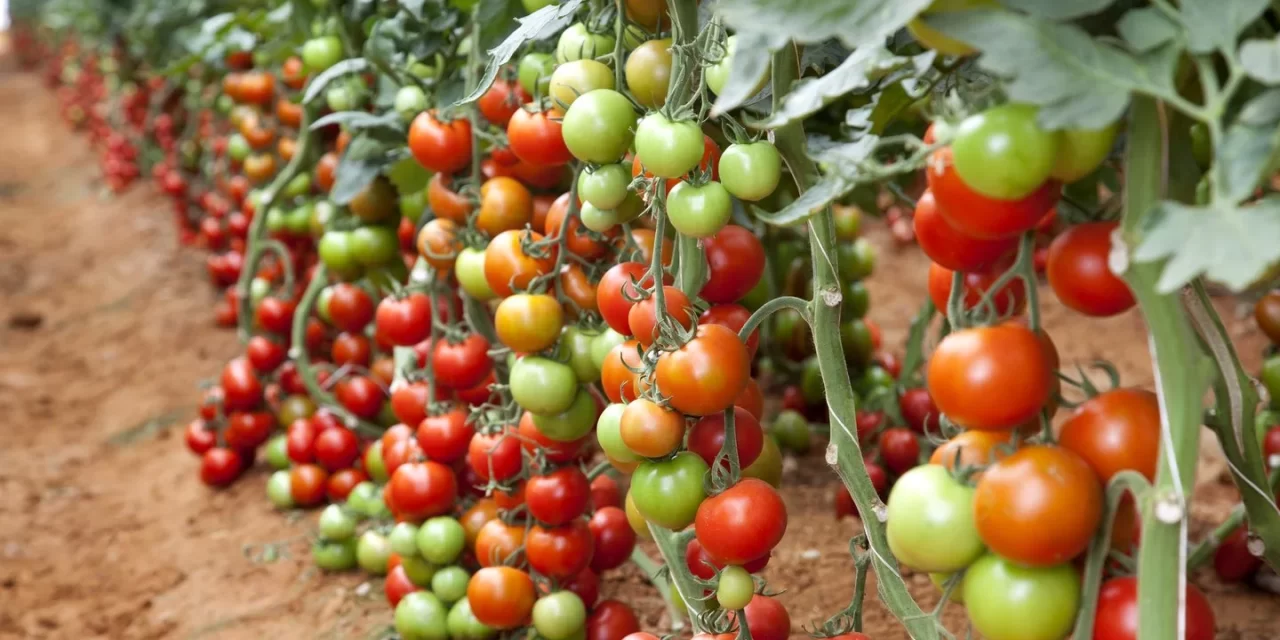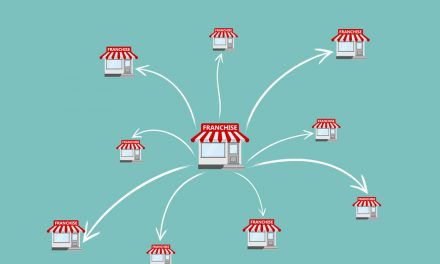South Africa’s agricultural landscape brims with potential, and one sector that stands out as a beacon of opportunity is the tomato farming business. Whether you are a seasoned agribusiness professional or an aspiring entrepreneur, the tomato farming business in South Africa presents a compelling proposition worth serious consideration. With an unwavering demand for tomatoes, a favorable climate, and a myriad of inherent advantages, starting a tomato farming enterprise in South Africa bears the potential not only for agricultural success but also for substantial economic gains. Tomatoes, those juicy, versatile wonders, are a kitchen essential in South Africa. From stews to salads, they’re in everything. That means the demand is steady year-round, making it a reliable market to dive into. But here’s the exciting part: tomatoes are also a cash cow. Their high yield rates per hectare, potential for multiple harvests each year, and opportunities for wholesale distribution offer significant revenue and high profit margins. With a focus on efficient resource management, market research, and good business practices, tomato farming is a gateway to a prosperous agricultural venture in South Africa. This article will outline how to start a tomatoes farming business in South Africa, and the tomato farming business plan – PDF, Word and Excel.
Before you start the tomato farming business, there are some important decisions which you have to make. You have to decide on the size of your tomato production business ie how many hectares of tomatoes you will farm. There are many different tomato varieties, so you have to select which one you will farm, the season you are going to carry out your tomato farming, and your target market. The size of your tomato farming business will depend on the size of land you have, the amount of capital you have, and your target market. It’s important that you have a good tomato production business plan before you venture into this business.
Market Research
Market research is a crucial step when embarking on the journey of starting a tomato farming business in South Africa. Understanding the dynamics of the tomato market, consumer preferences, and the competitive landscape will not only help you make informed decisions but also increase your chances of success in this industry. Selecting the right tomato variety is a critical aspect of market research for your tomato farming business in South Africa. It involves a thorough assessment of factors such as seed availability, local climate conditions, market preferences, and your target yield. Each tomato variety has unique characteristics and adaptability, and choosing the most suitable one will directly impact your production success and market competitiveness. By carefully considering these factors, you can make an informed decision on which tomato variety to plant, ensuring that it aligns with both the local agricultural conditions and the demands of your target market.
Incorporating pricing dynamics into your market research is also crucial for your tomato farming business in South Africa. It entails gaining a deep understanding of the prevailing tomato prices in your target market, identifying potential customer segments, and recognizing the seasonality of tomato prices. By analyzing pricing trends, you can establish competitive and profitable pricing strategies, while also being prepared for fluctuations in tomato prices throughout the year. This knowledge will enable you to cater to the needs of your potential customers, optimize your revenue, and make informed decisions about the timing of your tomato sales in the market. Examine the existing supply chain and distribution channels for tomatoes in South Africa. This includes understanding how tomatoes move from the farm to the consumer. Identifying potential partners or intermediaries in the distribution process can be instrumental in reaching a wider market. Study your competitors in the tomato farming industry. Identify other tomato farmers in your region and analyze their production methods, pricing strategies, and distribution networks. Understanding your competition will enable you to find opportunities for differentiation and competitive advantage.
Land for Tomato Farming Business
Land is a primary requirement and must be suitable for tomato production. The essence of tomato production is to ensure you reap yields that are as high as possible. When it comes to crop farming, soil fertility is of utmost importance. The soil must have impeccable qualities such as optimum aeration and lack of toxicity. This is why the use of organic farming approaches is most potent when it comes to tomato farming. The use of decayed leaves, compost or animal manure as organic matter is highly recommended here. This is because organic matter carries vital nutrients and possesses soil conditioning qualities. Tomatoes can grow on a wide array of soil textures depending on the variety of the tomato. For quick and early maturation, sandy soils are most ideal. They grow well provided the soil is pH is between 5.0 and 6.5.
Machinery & Equipment for Tomato Production Business
You will need different kinds of machinery and equipment for your tomato horticulture business. The land will need to be prepared and that’ll require varying levels of mechanisation. Small tracts of land might be prepared with hand-held implements without any problems. In some areas such as rural areas the use of animal drawn implements can come in handy. However, for much bigger tomato farming businesses, there’ll be need for machinery & equipment such as tractors, fertilizer spreaders, sprayers, diggers, harvesters, irrigation hardware, ridgers, amongst many others. You might not necessarily have to purchase all this equipment; most of it you can simply hire. The other needs will have to do with power generation as some of the operations such as irrigation will need power. You can incorporate the use of fuel-powered pumps also or leveraging on solar energy. You’ll also need to have to stand-by generators to cushion yourself against lengthy power outages. Your tomato farming business plan should cater for the costs of purchasing or hiring machinery and equipment.
Tomato Farming Inputs
Obviously tomato seeds are needed and there are many different types available. The 3 broad classes of tomato are determinate, semi-determinate and inter-determinate tomatoes. The major factors that’ll determine your choice of seeds are seed availability, yield capacity, resistance to diseases and your intended market’s preferences. You can start your tomato farming business by purchasing seeds, or alternatively you can just buy seedlings which are ready for transplanting from a nursery. Ensure that you buy seeds from certified and reputable suppliers. Tomato varieties/cultivars used in South Africa include Florodade, Heinz 1370, Karino, Rodade, Fortress, Hytec, Star 9001, Star 9003, Star 9009, Sundance, Zeal, Baldo, Blockbuster, Disco, P 747, Shirley, HTX 14, Legato, Roma VF, Rossol, Star 9056F, Sun 6216 and UC 82B, Bamby, Josephine, Atletico, Daniella and Gabriella. The choice of cultivars is based on fruit quality adaptability and reliability, susceptibility to diseases and pests, plant growth habit, the specific market and the tomato planting season.
Fertilizers are required to ensure soil fertility and augment tomato growth. For effective growth, tomatoes require plant nutrients like nitrogen, phosphorus and potassium. These nutrients should be provided via fertilisers and manure to promote growth of the tomatoes. Herbicides for effective weed control are important when carrying out tomato farming, and you can use herbicides like Metribuzine, Pyrinex 480EC, Ronstar depending on the type of weeds at your tomato farm. Fungicides and insecticides are essential for protection of your plants against insects and fungi. The chemicals you can use include Dimethoate EC, Malathion EC, Dedevap EC, Carbaryl, Nematicides just to mention a few.
You must also know that trellising and training of tomatoes is very important to some tomato cultivars and varieties. These aspects entail supporting the tomato plants on poles and wires (or other suitable support structures). Effective spraying, improved air circulation and less rotting are all wrought from trellising and training of the tomatoes.
The costs of acquiring all these inputs should be included in your tomato farming budgets.
Pests , Weeds & Disease Control
Managing pests, weeds, and diseases is a cornerstone of successful tomato farming in South Africa. These factors can pose significant threats to both crop health and profitability. When it comes to pest control, early detection and monitoring of common tomato pests like aphids, whiteflies, and hornworms are crucial. Regular scouting of your tomato plants enables the identification of pest infestations in their early stages, allowing for timely intervention. Consider incorporating biological controls, such as beneficial insects or natural predators. Timely intervention is key, and when necessary, chemical pesticides provide a potent solution. Similarly, the use of fungicides is essential to combat fungal diseases that can devastate tomato crops. Weed management is equally vital for optimizing yields and profitability. Weeds compete with tomato plants for essential resources like nutrients, water, and sunlight. Employing effective weed control measures such as mulching, mechanical cultivation, and judicious use of herbicides can help maintain weed populations at manageable levels.
While chemical interventions are a cornerstone of pest, weed, and disease control, it is imperative to exercise prudence in their usage. Employing these agents should be complemented by sustainable practices to mitigate environmental impact. A balanced approach that combines the careful application of pesticides, fungicides, and herbicides with broader strategies in integrated pest management ensures not only the health of your tomato crop but also the sustained profitability of your tomato farming enterprise in South Africa.
Tomato Farming Business Model
The tomato farming business model involves several key steps and considerations. First, you’ll need suitable land for cultivation, where you’ll plant your tomato seeds or seedlings. Throughout the growth cycle of tomatoes, essential inputs such as water, fertilizers, and pesticides are required to ensure optimal plant development. Labor costs are also a significant component, encompassing tasks such as planting, tending to the crops, and eventually harvesting. The harvest period typically occurs after 2 to 4 months, and it can extend over a period of time as tomatoes ripen at different rates and to avoid going to market all at once. The potential tomato yield per hectare can range from 40 to 100 tonnes, depending on factors like the chosen production system, the quality of inputs used, and the tomato variety cultivated.
One of the remarkable aspects of the tomato farming business model is the potential for substantial revenue generation. With the significant quantity of tomatoes produced, you can enter the wholesale market, selling your harvest in bulk. The revenue generated from these sales far exceeds the combined costs of inputs, production, and operating expenses. This surplus constitutes your profit, making tomato farming a financially viable venture. Effective management of resources, including optimizing input usage and marketing strategies, plays a pivotal role in ensuring the profitability of your tomato farming business in South Africa.
Human Capital for Tomato Farming Business
When doing tomato farming business, you will need to hire part time farm workers as and when necessary. Part-time labourers will be required because there’s a lot of seasonal work to be done. Some of the activities will include seed planting, transplanting, applying fertilizers, trellising, ploughing, harvesting, amongst several others. The part time farm workers should be paid according to the number of days worked so as to cut costs. You also require supervisors, farm manager, finance & accounting staff, and logistics staff depending on the scale of your tomato farming business. The wages and salaries of your workers should be included in your tomato farming business plan.
Market
There is a large local demand for tomatoes in South Africa, with more than 480 000 tonnes being sold per year in South Africa, and some of the excess being exported. Most of the tomatoes are produced for domestic consumption. Tomatoes are consumed in diverse ways including raw, as an ingredient in many dishes, stews and sauces. Tomatoes are also used by food processors for making tomato sauce, paste, canned tomatoes, puree among other products. The customers for tomatoes include individuals, caterers, restaurants, food processors, supermarkets, national fresh produce markets etc.

Pick n Pay Packed Tomatoes
Keys to Profitability
Profitability in your tomato farming business in South Africa hinges on a combination of strategic decisions and effective execution. Firstly, it’s crucial to carefully select the right tomato variety that aligns with your local climate, market demand, and yield expectations. High-yielding and disease-resistant varieties often yield better results. Efficient resource management is another essential factor, encompassing prudent use of water, fertilizers, and pesticides. By avoiding overuse or wastage, you can curtail production costs. Sustainable farming practices also contribute to resource conservation.
Cost control is pivotal in maintaining profitability. Monitor production costs, including labor expenses, and allocate your budget efficiently. Regularly evaluate your cost structure, searching for opportunities to reduce expenses without compromising product quality. Additionally, keep a close watch on market trends and consumer preferences through continuous market research. Flexibility is key, allowing you to adapt your production and marketing strategies to changing demands and identify niche markets or premium pricing opportunities.
Quality assurance cannot be overstated. Consistently delivering high-quality tomatoes not only ensures customer satisfaction but can also command higher prices, enhancing your bottom line. Strategic timing, aligning planting and harvesting schedules with periods of higher market demand and favorable pricing, is also crucial. Develop effective marketing strategies and explore diverse distribution channels to maximize your reach and sales potential. Furthermore, proactive pest and disease management, along with rigorous record-keeping, are integral components of a profitable tomato farming venture. Investing in the long-term sustainability of your business, including soil health, crop rotation, and infrastructure improvements, ensures consistent yields and enduring profitability in the South African tomato farming industry.
Advantages of Tomato Farming Business in South Africa
Undertaking a tomato farming business in South Africa presents a host of compelling advantages that make it an enticing pursuit for agricultural entrepreneurs. One of the most prominent benefits is the consistently high demand for tomatoes in South African cuisine. Tomatoes serve as a staple ingredient in a wide array of dishes, ensuring a steady and year-round market demand. This market stability minimizes the risks associated with seasonal fluctuations and provides tomato farmers with a dependable source of income. Moreover, the potential for profitability is substantial. With effective planning and execution, tomato farming can yield significant returns. The relatively short growth cycle of tomatoes allows for multiple harvests throughout the year, amplifying revenue potential. Furthermore, the ability to sell tomatoes in bulk at the wholesale level can result in considerable profits.
Tomato farming also exhibits remarkable versatility in cultivation, thanks to South Africa’s diverse climate zones. Whether in the temperate Western Cape or the warmer northern provinces, you can choose a location that aligns with your preferred tomato varieties and market opportunities. Additionally, tomato farming holds the potential to generate employment opportunities, particularly in rural areas. This contributes to local economic development, enhancing the livelihoods of farmworkers and surrounding communities.
South Africa’s increasingly health-conscious consumers provide another advantage. They are seeking fresh, locally grown produce, and tomatoes fit this bill perfectly. By delivering high-quality, nutritious tomatoes that align with consumers’ preferences for locally sourced, organic, or sustainably grown products, tomato farmers can cater to this trend. Furthermore, the export potential of South Africa’s favorable climate, which allows for extended tomato cultivation seasons, can significantly bolster profitability by opening doors to international markets.
PRE-WRITTEN TOMATO FARMING BUSINESS PLAN (PDF, WORD AND EXCEL): COMPREHENSIVE VERSION, SHORT FUNDING/BANK LOAN VERSION AND AUTOMATED FINANCIAL STATEMENTS
For an in-depth analysis of the tomato farming business in South Africa, purchase our tomato farming business plan. We decided to introduce the business plans after noting that many South Africans were venturing into the tomatoes production business without a full understanding of the industry, market, how to run the business, the risks involved, profitability of the business and the costs involved, leading to a high failure rate of their businesses.
Our business plan will make it easier for you to launch and run a tomato production business successfully, fully knowing what you are going into, and what’s needed to succeed in the business. It will be easier to plan and budget as the tomato production business plan will lay out all the costs involved in setting up and running the tomato farming business. The business plan is designed specifically for the South African market.
USES OF THE TOMATO PRODUCTION BUSINESS PLAN (PDF, WORD AND EXCEL)
The tomato production business plan can be used for many purposes including:
- Raising capital from investors/friends/relatives
- Applying for a bank loan
- Start-up guide to launch your tomato farming business
- As a tomato farming project proposal
- Assessing profitability of the tomato farming business
- Finding a business partner
- Assessing the initial start-up costs so that you know how much to save
- Manual for current business owners to help in business and strategy formulation
CONTENTS OF THE TOMATO FARMING BUSINESS PLAN (PDF, WORD AND EXCEL)
The business plan includes, but not limited to:
- Market Analysis
- Industry Analysis
- 5 Year Automated Financial Statements [ Income statements, cash flow statements, balance sheets, monthly cash flow projections (3 years monthly cash flow projections, the remaining two years annually),break even analysis, payback period analysis, start-up costs, financial graphs, revenue and expenses, Bank Loan Amortisation]
- Marketing Strategy
- Risk Analysis
- SWOT & PEST Analysis
- Operational Requirements
- Tomatoes farming guide (Technical Details of how to plant, grow and harvest the tomatoes)
- Operational Strategy
- Why some South Africans in the tomato production business fail, so that you can avoid their mistakes
- Ways to raise capital to start your tomato farming business in South Africa
- Directory [Contact Details for South African suppliers of inputs (seeds, fertilisers, equipment etc) and contacts of tomato farming training companies in South Africa]
The Tomato Farming Business Plan package consist of 4 files
- Tomato Farming Business Plan – PDF file (Comprehensive – 86 pages)
- Tomato Farming Business Plan – Editable Word File (Comprehensive – 86 pages)
- Tomato Farming Business Plan Funding Version – Editable Word File (Short version for applying for a loan – 41 pages)
- Tomato Farming Business Plan Automated Financial Statements – (Editable Excel file)
The financial statements are automated. This implies that you can change eg the number of hectares, tomato price per KG etc, and all the other financial statements will automatically adjust to reflect the change.
GET THE TOMATO FARMING BUSINESS PLAN (PDF, WORD AND EXCEL) - R500 Only.
We decided to make the business plan affordable to anyone who would want to start the business, and the price for the pre-written business plan is only 500 Rand.
We have several payment methods which you can use.
Payment Method 1 (Visa card, Mastercard, Credit card, Debit Card)
Click Buy Now below to purchase. After you have purchased, you will instantly see the download link for the business plan package on the screen. We will also email you the download link. Get instant access to the business plan now!
If you want to purchase multiple business plans at once using Visa Card/MasterCard then click here: Business Plans Store
The business plan package is a zipped compressed file containing the PDF, Word and Excel documents. To open the package after downloading it, just right click, and select Extract All. If you have any problems in downloading and opening the files, email us on sales@bizbolts.co.za and we will assist you.
Payment Method 2 (Instant EFT - FNB, Absa, Standard Bank, Nedbank, CapitecBank, Investec, TymeBank and African Bank. )
Click Buy Now below to purchase. After you have purchased, you will instantly see the download link for the business plan package on the screen. We will also email you the download link. Get instant access to the business plan now!
If you want to purchase multiple business plans at once using Instant EFT then click here: Business Plans Store
The business plan package is a zipped compressed file containing the PDF, Word and Excel documents. To open the package after downloading it, just right click, and select Extract All. If you have any problems in downloading and opening the files, email us on sales@bizbolts.co.za and we will assist you.
Other Payment Methods
- Cash deposit into our FNB Company Bank Account
- EFT Transfer to our FNB Company Bank Account
Call/Whatsapp us on +27606334830 for the other payment methods. (Whatsapp us by clicking the link https://wa.me/27606334830). Email: sales@bizbolts.co.za .











